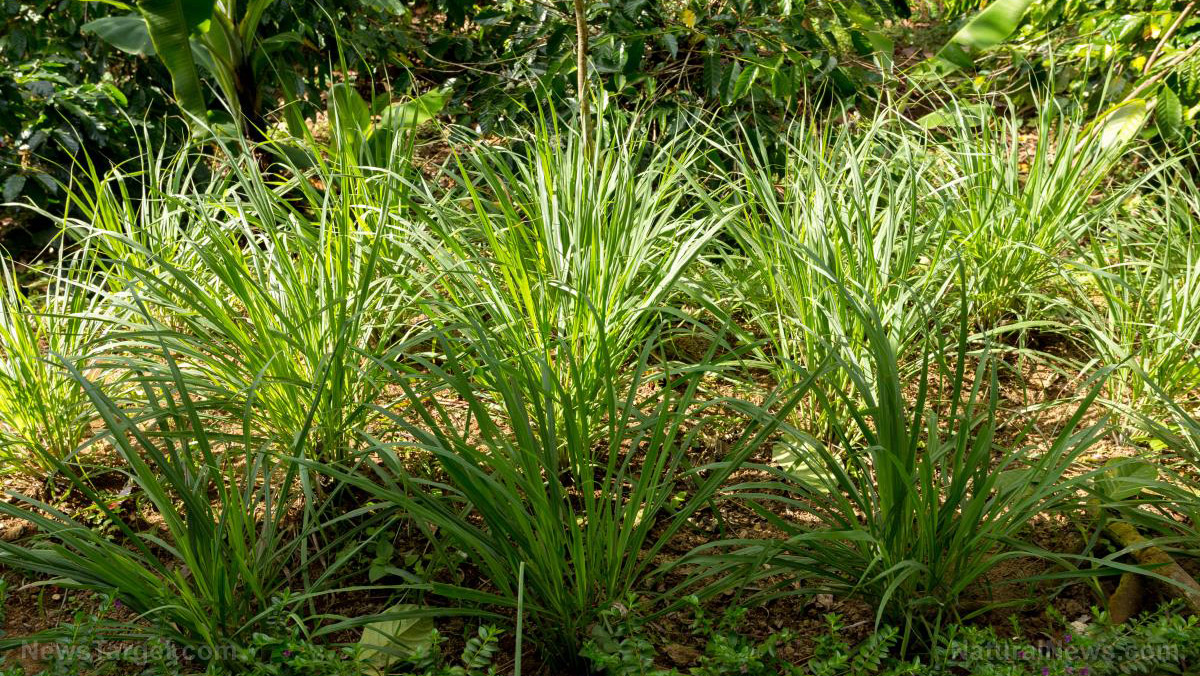I suppose that some of our most common herbs just happen to chase insects away. Their value as herbs were always rather too subtle for my liking but this use as a way to protect the garden border more than makes up for any reservations.
Thus we have a real tool in our toolbox and we need to be consious of this when planning a garden out.
A pleasant surprise though a long way from a complete solution..
Tags: allium, basil, chrysanthemum, gardening tips, homesteading, insect-repelling plants, Lavender, lemon thyme, lemongrass, marigold, Mint, nasturtium, natural insect repellents, Off Grid living, petunia, pitcher plant, Rosemary
2,450Views
https://www.naturalnews.com/2018-08-08-12-plants-to-keep-the-bugs-away.html
- Rosemary — Not just for home cooking, this popular herb is also an effective repellent against mosquitoes and other insects harmful to vegetables. This, according to FantasticGardeners.co.uk, is what makes rosemary a good companion plant. Even its cuttings are good at warding off insects. This is one multipurpose herb that would be welcome in the backyards of home cooks and gardeners alike.
- Basil — If mosquitoes and house flies are your biggest problem, then basil is a plant you have to keep around your home. The scent of basil is especially repulsive to these insect invaders, so keep pots of basil by your doors and outdoor areas.
- Mint — Like basil, mint is an excellent plant to use against mosquitoes. Unlike basil, mint is a tenacious and aggressive plant that can spread like weeds if left on the ground. Because of this, mint is best planted in pots to make it the problem of mosquitoes and not yours.
- Lavender — Its scent is known to calm and relax people, but most unwanted insects absolutely hate it. A bouquet of lavender will keep mosquitoes, fleas, house flies and moths away from any room of your house.
- Lemon thyme — This hardy plant is unlike the others because the plant won’t repel insects by itself. To get the most out of lemon thyme, you need to crush the leaves to release the chemicals in the plant. An unusual plant to keep, it’s still one that works well against cabbage maggots, tomato hornworms, cabbage loopers, and corn earworms.
- Lemongrass — Citronella is marketed as an effective mosquito repellent, so the plant where citronella comes from is just as good. Found only in South Florida, lemongrass does well both in a pot and in the ground, so you can use it in your home and in your garden.
- Petunias — This colorful and popular flower is surprisingly effective at dealing with insects. Rather than repelling or outright killing them, petunias trap insects with their sticky stamens and keep them there until the insects eventually expire.
- Alliums — If you’re growing a vegetable garden, alliums are a must-have plant. This flowering form of garlic and onion can take care of garden-destroying pests like slugs, aphids, and cabbage worms.
- Nasturtiums — A beautiful flower that makes an excellent companion plant, the airborne chemical that nasturtiums release protect the flower and surrounding plants. Tomatoes, broccoli, cabbage, and cucumbers benefit greatly from nasturtium.
- Chrysanthemums — A special chemical called pyrethrum is what makes chrysanthemums a fantastic repellent against roaches, ticks, and fleas.
- Marigolds — There are many varieties of marigold, but they all have the same health benefits. What makes marigolds unique is that their smell can chase off aphids, mosquitoes,and larger animals like rabbits.
- Pitcher plants — An unorthodox but practical choice. Any insect that falls into its pitcher—actually a specialized leaf—won’t be coming back out. North American pitcher plants can take care of ants, beetles, slugs, and wasps.
Keeping insects away doesn’t need to be difficult or
require the use of chemicals. So put the pesticide away and bring out
your gardening tools. With a few additions to your home and garden, you
can be bug-free during the summer.
Learn more tips on how to naturally repel insects at Homesteading.news.
Sources include:

No comments:
Post a Comment